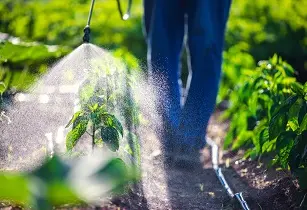Better Cotton, the world’s largest cotton sustainability initiative, has announced four new Impact Targets covering Soil Health, Women’s Empowerment, Pesticides, and Sustainable Livelihoods
These ambitious new metrics form part of its ongoing 2030 Strategy and detail plans to galvanise change at the field level in key areas. The new targets sit alongside the first commitment outlined in the organisation’s strategy – related to Climate Change Mitigation – which sets out to reduce greenhouse gas emissions by 50% per tonne of Better Cotton lint produced by the end of the decade.
The Intergovernmental Panel on Climate Change’s (IPCC) recent Synthesis Report warned that every increment of global warming results in rapidly escalating climate hazards, with more intense heatwaves, heavier rainfall and other weather extremes expected to further increase risks to human health and ecosystems.
“Mainstreaming effective and equitable climate action will not only reduce losses and damages for nature and people, it will also provide wider benefits,” insisted IPCC chair, Hoesung Lee.
With more than 22 million tonnes produced annually, cotton is one of the world’s most important renewable resources and exists in very diverse landscapes. The sector's development has the potential to reduce poverty while promoting sustainability and equality which is why four Impact Targets were developed in conjunction with leading civil society organisations and industry experts:
o Sustainable Livelihoods: Sustainably increase the net income and resilience of two million cotton farmers and workers.
o Soil Health: Ensure 100% of Better Cotton farmers have improved the health of their soil.
o Women’s Empowerment: Reach one million women in cotton with programmes and resources that promote equal farm decision-making, build climate resilience, or support improved livelihoods. And ensure 25% of field staff are women with the power to influence sustainable cotton production.
o Pesticides: Reduce the use and risk of synthetic pesticides applied by Better Cotton farmers and workers by at least 50%.
In the 2020-21 cotton season, Better Cotton and its network of field-level partners trained 2.9 million farmers in 26 countries on more sustainable farming practices.
Better Cotton continues to drive continuous improvement at the field level to help cotton farming communities survive and thrive, while protecting and restoring the environment. These new Impact Targets will help ensure more significant and lasting economic, environmental and social benefits in cotton-growing communities by establishing focus and helping to leverage funding, knowledge partners and other resources to build momentum for change at scale.
Alan McClay, CEO of Better Cotton, said, “Driving impact at the field-level is imperative for Better Cotton’s ambitions in what is a defining decade for our planet. Our new Impact Targets will allow us to continue taking measurable steps to support more sustainable cotton production. Pushing further towards regenerative and climate-smart agriculture, we can ensure cotton farmers and farm workers are equipped to address their environmental impact, futureproof their operations and adapt to the often unpredictable effects of global warming.
“Better Cotton continues to train an ever-growing global community on more sustainable farming practices. The Impact Targets will improve conditions across more than just cotton production, reaching beyond farming communities to benefit their landscapes, supply chains and ultimately consumers.”




